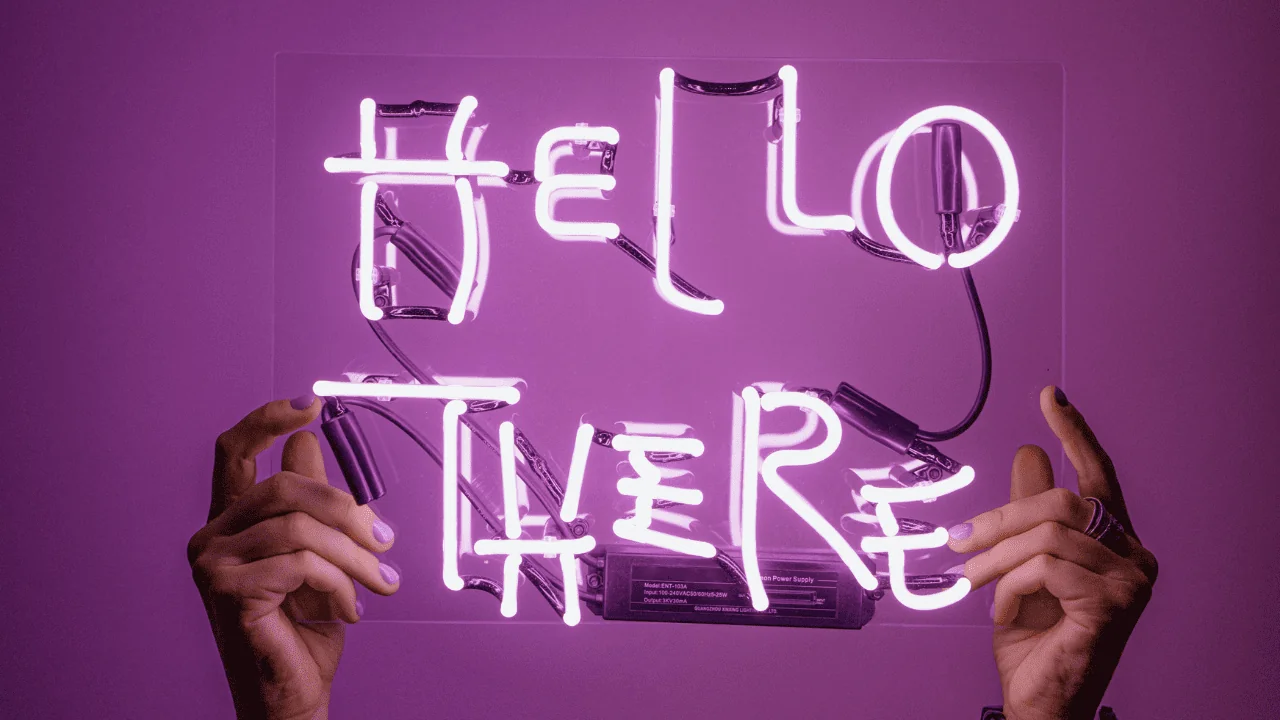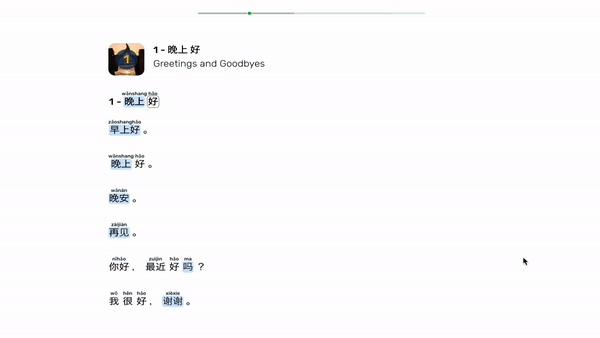10 Ways to Say Hello in Chinese
Chinese learning has become popular in many countries. People learn Chinese for various reasons. Some consider China a fascinating country for job-hunting and career development, others are passionate about gaining a deeper understanding of Chinese culture.
When it comes to language learning, the first question people tend to ask is how to say “hello”. There are several words and phrases you can use to express “hello” in Chinese.
10 Ways To Say Hello in Chinese

你好 nǐ hǎo:the most common way to say hello in Chinese
As has been mentioned above, “你好 (nǐ hǎo)” is the most common way to say hello in Chinese, and it can be used anytime during the day. “你 (nǐ)” means “you”, and “好 (hǎo)” means “good”. Therefore, the literal meaning of this word is “you good”. Chinese people say “你好 (nǐ hǎo)” to each other as this word is considered “well-wishing”. The hidden meaning behind this word is that Chinese people hope everything is going well with their family members and friends, or sometimes even strangers.
您好 nín hǎo
This word is another popular way to say hello in Chinese (especially in Northern China). The difference between “您好 nín hǎo” and “你好 nǐ hǎo” lies in the meaning of “您 nín”, which is the polite form of “you”. Therefore, if you meet someone for the very first time, or when you would like to say hello to people from older generations, it’s better to say “您好 nín hǎo”. However, you don’t need to strictly follow this rule if you live in Southern China as “你好 nǐ hǎo” is much more commonly used in various situations.
你们好 nǐmen hǎo
“你们好 nǐmen hǎo” also means “hello”, in which “你们 nǐmen” stands for the plural form of “you”. Hence, this word is usually used when you see a group of people.
大家好 dà jiā hǎo
The meaning of this word is slightly different from that of the three words explained above. “大家 dà jiā” can be translated as “everyone”. Therefore, the actual meaning of this word is “hello everyone”. It can be used, let’s say, when you meet a group of new friends. In addition to this, you can also use this word to say hello to your new colleagues on the first day when you arrive at your new workplace.
You can study the greetings and goodbyes in Chinese on LingQ. Work through the lesson and translate words and phrases you don’t know to add to your personal database of vocabulary:

喂 wèi
Chinese learners, especially beginners need to be careful with the use of this word. Despite the fact that “喂 wèi” indeed means “hello”, however, it’s only used when people are talking on the phone. Meanwhile, many young people in China tend to say “你好 nǐ hǎo” instead of “喂 wèi” even if they are talking on the phone. Another important factor you should always bear in mind is that you need to avoid using “喂 wèi” when you see someone face to face. The reason for that is because using “喂 wèi” in this situation would make you sound quite rude.
早 zǎo /早上好 zǎo shàng hǎo
In addition to the five Chinese words explained above, there are some other ways to say hello in Chinese depending on the time of day. For instance, if you would like to say hello to your colleagues after arriving at the office in the morning, you could say “早 (zǎo)” or “早上好 (zǎo shàng hǎo)”. Both phrases mean “good morning”, and the key word “早 (zǎo)” means “early”. Consequently, if you bump into your buddy in the afternoon, you could say “下午好 (xià wǔ hǎo)”, in which “下午 (xià wǔ)” means “afternoon”. When you see, let’s say, some friends at a party on a Friday evening, you could replace “你好 (nǐ hǎo)” with “晚上好 (wǎn shàng hǎo)”, which means “good evening”.

你吃了吗? nǐ chī le ma?
This is a popular question that Chinese people ask during lunch breaks and in the evening. What is interesting about this question is that its actual meaning is “Have you eaten?” or “Have you finished your lunch/dinner?”. Chinese people ask this question when they see someone they know not because they really care about the fact that if this person has finished his or her meal, but because it’s a common way to start a casual conversation. Therefore, the “function” of this question is similar to that of “hello” or “how are you doing?” in English. Chinese people’s habit of asking this question to start a small talk implicitly reflects China’s rich food culture, which is famous worldwide.
嗨 hāi /哈喽 hā lóu
You can easily tell that these two words mean “hello” based on their pronunciation. Nowadays, young people in China are open-minded and susceptible to western culture. They are willing to learn foreign languages and communicate with people from different cultural backgrounds. As a result, quite a few loan words can now be observed in the Chinese language. “嗨 (hāi)” and “哈喽 (hā lóu)” are typical loan words that Chinese people use on a daily basis.
***
That’s Mandarin is a premier Chinese Language School that has been delivering excellence in Chinese teaching since 2005 to more than 50,000 students of different nationalities.They provide classes in Shanghai, Beijing and Suzhou, as well as anywhere in the world online via their in-house platform NihaoCafe — an interactive Chinese learning platform that lets you connect with native Chinese teachers online, and review your digital class notes.

